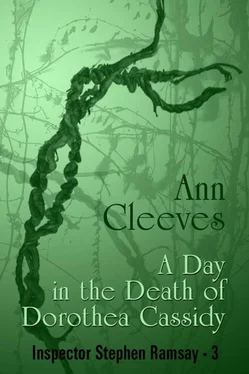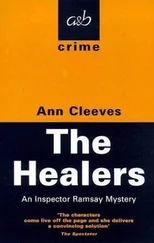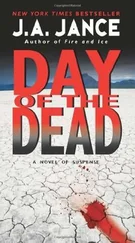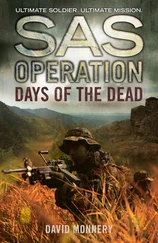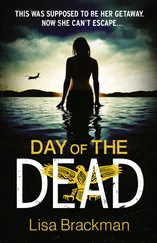Ann Cleeves - A Day in the Death of Dorothea Cassidy
Здесь есть возможность читать онлайн «Ann Cleeves - A Day in the Death of Dorothea Cassidy» весь текст электронной книги совершенно бесплатно (целиком полную версию без сокращений). В некоторых случаях можно слушать аудио, скачать через торрент в формате fb2 и присутствует краткое содержание. Жанр: Детектив, на английском языке. Описание произведения, (предисловие) а так же отзывы посетителей доступны на портале библиотеки ЛибКат.
- Название:A Day in the Death of Dorothea Cassidy
- Автор:
- Жанр:
- Год:неизвестен
- ISBN:нет данных
- Рейтинг книги:5 / 5. Голосов: 1
-
Избранное:Добавить в избранное
- Отзывы:
-
Ваша оценка:
- 100
- 1
- 2
- 3
- 4
- 5
A Day in the Death of Dorothea Cassidy: краткое содержание, описание и аннотация
Предлагаем к чтению аннотацию, описание, краткое содержание или предисловие (зависит от того, что написал сам автор книги «A Day in the Death of Dorothea Cassidy»). Если вы не нашли необходимую информацию о книге — напишите в комментариях, мы постараемся отыскать её.
A Day in the Death of Dorothea Cassidy — читать онлайн бесплатно полную книгу (весь текст) целиком
Ниже представлен текст книги, разбитый по страницам. Система сохранения места последней прочитанной страницы, позволяет с удобством читать онлайн бесплатно книгу «A Day in the Death of Dorothea Cassidy», без необходимости каждый раз заново искать на чём Вы остановились. Поставьте закладку, и сможете в любой момент перейти на страницу, на которой закончили чтение.
Интервал:
Закладка:
At almost the same time, the night before, Dorothea Cassidy had been carried down this path and laid to rest on the flower bed. The park was as quiet now, at ten o’clock, with the pubs still open, as it had been in the early hours of the morning. There were lamps in the park but they were a long distance apart and it was not, after all, so surprising that the revellers, on their way home in the dark, had failed to see a body at their feet.
The belief that Dorothea had been moved to the park in the early hours of the morning had been his first mistake. There had been many more. He had thought the murderer would be rational, clear-sighted; he realised now that each move had been a response to panic. He had to get to the town before the killer panicked again.
Chapter Nineteen
It had seemed to get dark suddenly. The sun disappeared and almost immediately afterwards the fairy lights along the river were switched on and so were the spotlights directed at the abbey and the town walls. The visitors who were climbing into coaches to take them home were enchanted. How pretty the town was! they said. What a delightful evening!
In contrast, with nightfall the fair became a more menacing and exciting place. Children were taken home, protesting and exhausted, carried on parents’ shoulders, and the site was left to the gangs of teenagers, to the older men who stood in the shadows and watched them jealously and to the police with their photos and their questions. The rides seemed to become more noisy and frantic.
Joss Corkhill had spent all evening successfully avoiding the police. His friends on the fair had helped him, allowing him to crouch beneath the hoop-la stall or in the canvas folds of the hot-dog tent. It had become a game – spotting the plain-clothes detectives at a distance and making sure Joss was out of the way before they arrived at the ride where he was working. None of them had any time for the police. They had been harassed too often, blamed for crimes they had never committed. Now they felt the concentration of the police on the fairground was an injustice. Anyone in the town could have murdered that vicar’s wife, they said. Why blame it on one of us? We didn’t even know her and old Joss wouldn’t hurt a fly.
Joss had been drinking all evening and had reached the euphoric peak which was the highlight and purpose of all his drinking bouts. He did not always achieve the high, and he knew it would be quickly followed by depression, but while it lasted he was magnificently content. He wondered now how he had ever become entangled with Theresa Stringer and her bloody family. Why had he wanted her to travel with him so much anyway? He was better on his own. As he played his strange game of hide and seek all over the fairground, he felt the exhilaration of the chase. Nothing else had any importance at all.
He was back at work on the Noah’s Ark when he saw the pretty woman who had been at the fair the night before with Dorothea Cassidy. He was standing on the ride with his back to the safety rail, keeping an eye on the crowd for the fuzz. Despite the alcohol he balanced perfectly, even when the ride was at its fastest. He knew the two giggling girls sitting near to him were watching him, and he intended, as the ride slowed, to offer to help them off. Then he glimpsed the pale young woman, just for a moment, in the crowd. He was tempted to find one of the policemen, to point her out and say: ‘That’s the one you want.’ But why should he? Let the police do their own dirty work.
Imogen Buchan did not know why Patrick had brought her to the fair. The noise and the crowd made her feel sick and faint. She had eaten very little all day. Patrick’s phone call had summoned her to a pub in the town centre, close to the church and she had thought they would talk, there would be explanations, and the tragedy of Dorothea’s death would bring them close together again. There would be a return of the old intimacy. She would help him through his grief. Instead he had dragged her from one packed pub to another and when she tried to take his hand, to express some sympathy, he pushed her away. Then he had insisted that she go with him to Abbey Meadow.
‘I should go home,’ she had said. ‘They’ll be wondering where I am. They’ll be worried.’
‘Sod them!’ he had said, and pulled her roughly by the arm, past the carnival floats over the dark and trampled grass to the fair. She had never liked the speed of the big rides. Even the galloping horses made her feel sick, she said, trying to make a joke of it, trying to lighten his mood. But he would not listen to her. He pulled her with him into the waltzers and sat with his arm around her, his fingernails digging into her shoulder, his head very close to hers. He seemed to take a delight in her terror, smiling when she screamed. Then he took her on to the Big Wheel. She gripped the safety rail and shut her eyes. The chair rose slowly as other riders got on beneath them. When they reached the highest point of the circle he rocked the chair violently so she was certain he would tip them both out.
The centre of the town was so choked with traffic that Hilary Masters decided to park her car at the social services office. It would be easier to walk to her flat which was in a new block close to the river. The fresh air seemed to make Theresa more alert, but Hilary walked close beside her, protectively. It took longer than she had expected to reach the town centre, she had forgotten that the park had been closed to the public. When they got there the carnival parade was already over and she was unreasonably upset that she could not show Theresa the decorated lorries.
‘Never mind,’ she had said, as if speaking to a child. ‘There’s always next year.’
‘I want to find Joss,’ Theresa said as they crossed the bridge. ‘I’m going to the fair to find Joss.’
‘I’m not sure that’s a good idea,’ Hilary said dispassionately.
‘I’m going to find Joss,’ Theresa repeated. ‘If you don’t come with me I’ll go by myself.’
So Hilary followed Theresa on to the field. She hadn’t been to the fair since she was a child, she said. It wasn’t her scene. The place seemed fraught with danger and she looked, with her social worker’s disapproval, at two kids who were clowning around at the top of the Big Wheel.
When it got dark Edward Cassidy could stand waiting for his son no longer. He knew sleep would be impossible. He could not bear to shut the curtains because he wanted to catch the first glimpse of the headlights of Patrick’s car, but the flashing lights of the fairground threw strange shapes on the walls and everywhere he thought he saw the shadow of Dorothea, laughing at him. He knew he was exhausted, but he knew too that he could not stay in the vicarage.
He left the light on in the hall and the door open and went outside. Even in the vicarage garden the noise overwhelmed him. The screech of machinery and of amplified pop music seemed unnaturally loud. He walked down the drive into the busy town centre and was swallowed up by the crowd. He saw everything in sharp outline, heard everything clearly – distinct phrases spoken by people he passed in the street, the strain of the Northumbrian pipes which came from an open pub window. He was watching and listening for Patrick, hoping to see the familiar lanky silhouette marching up the street in front of him, hoping to catch a few words spoken in a voice he recognised. He wanted to tell Patrick that they had both been fools.
In the small house in Armstrong Street Walter Tanner lay on his bed, wide awake. The police had wanted him to move out for the night, had even suggested that they might put him up in a hotel if he had nowhere else to go, but with uncharacteristic spirit Walter had stood up to them. This was his home, he said. Body or no body in the bath. Despite the horror of it all he was happier here than anywhere else. He was too far from the fairground to be troubled by noise inside the house – he could hear the music but only faintly. Yet still he found it impossible to relax. Images whirled into his mind like the figures on a carousel. There was his mother, peevish and complaining, holding taut between her hands the wire she had used in the shop to cut the cheese; there was Dorothea, dressed as she had been on one of her visits to him in a white sleeveless sundress, held up only by thin straps at the shoulder; there was Clive Stringer, moronic and cunning, bent double with laughter. Walter got out of bed, walked to the window and opened it, thinking some air might help him to sleep. As he pushed against the rusty catch, there must have been a lull in the music, because when the window finally swung wide open he quite clearly heard a woman scream, and then there was silence.
Читать дальшеИнтервал:
Закладка:
Похожие книги на «A Day in the Death of Dorothea Cassidy»
Представляем Вашему вниманию похожие книги на «A Day in the Death of Dorothea Cassidy» списком для выбора. Мы отобрали схожую по названию и смыслу литературу в надежде предоставить читателям больше вариантов отыскать новые, интересные, ещё непрочитанные произведения.
Обсуждение, отзывы о книге «A Day in the Death of Dorothea Cassidy» и просто собственные мнения читателей. Оставьте ваши комментарии, напишите, что Вы думаете о произведении, его смысле или главных героях. Укажите что конкретно понравилось, а что нет, и почему Вы так считаете.
